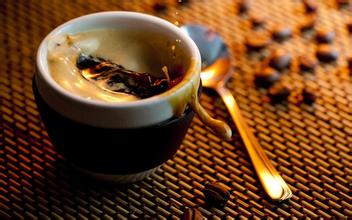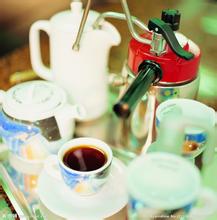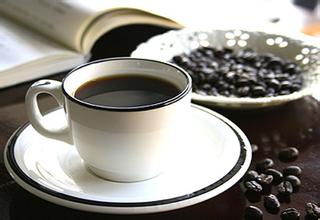Fragrant and authentic El Salvador boutique coffee bean flavor taste introduction to the planting environment of the manor production area
Frente Farabundo Mart í parala Liberaci ó n Nacional, the ruling party. In October 1980, the "Farabundo Marty people's Liberation Army", the "National Resistance Forces", the "people's Revolutionary Army", the Central American Labor Revolutionary Party and the Communist Party of El Salvador jointly formed an armed front against the government. In January 1992, the Front signed a Peace Agreement with the Government and became a legitimate political party in December. In June 1995, all parties within the Front uniformly formed the "Farabundo Marti National Liberation Front" party. Three elections were lost in 1994, 1999 and 2004, and the party's candidate Funes won the presidential election in March. By January 2016, the party had about 120000 members.
The National Republican Alliance (Alianza Republicana Nacionalista), the main opposition party. It was founded by Roberto D'Abuisson in September 1981 and officially registered in January 1982. He was in power from 1989 to 2009. [1]
Political dignitaries
Sanchez Salem
Sanchez Salem is president of El Salvador. He was born on June 18, 1944 in Xattepec, El Salvador. After graduating from Alberto normal School, he taught in a primary school in his hometown for 10 years. He participated in the creation of the first left-wing armed force in El Salvador, the Farabondo Marti people's Liberation Forces, in 1970 and became general secretary of the organization in April 1983. Since then, the organization has joined forces with other left-wing political and military groups in Saudi Arabia to form the Marty Front. In 1992, he participated in the signing of the Peace Agreement that marked the end of the civil war in Saudi Arabia. He served as General Coordinator of the Marty Front twice from 1994 to 1997 and from 2001 to 2004. He was elected for three consecutive terms from 2000 to 2009, and served as the leader of the parliamentary caucus of the Marty Front from 2006 to 2008. Served as Vice President and Minister of Education from June 2009 to June 2014. In March 2014, he was elected president as a candidate of the Marty Front and took office on June 1 for a five-year term.
Features of Salvadoran coffee:
Coffee from El Salvador is a specialty of Central America, where it is light, fragrant, pure and slightly sour.
Flavor: balanced taste and good texture
Recommended baking method: moderate to deep, with a variety of uses
★: general
Market for Salvadoran coffee:
The best Salvadoran coffee is exported from January to March, and 35% of the extra hard beans are exported to Germany.
In 1990, the Government of El Salvador privatized part of the coffee export industry, hoping to increase the income rate of coffee in the export market. El Salvador's coffee producing areas:
Like Guatemala and Costa Rica, coffee in El Salvador is graded according to altitude, and the higher the altitude, the better the coffee. The best brand is Pipil, which is what the Aztec-Mayan (Aztec-Mayan) called coffee, which has been recognized by the American Organic Certification Society (OrganicCertifiedlnstituteofAmerica). Another rare coffee is Pacamara, a hybrid of Pacas and Maragogype. The best place to produce the coffee is in western El Salvador, adjacent to SantaAna, which is close to the border with Guatemala. Parkmara coffee is full-grained, but not very fragrant

Important Notice :
前街咖啡 FrontStreet Coffee has moved to new addredd:
FrontStreet Coffee Address: 315,Donghua East Road,GuangZhou
Tel:020 38364473
- Prev

Flavor and taste of Panamanian boutique coffee beans introduction to the planting environment of Rosa coffee in manor area
Panamanian coffee is famous for the rosy summer of the Emerald Manor, which is also famous in the Boquete region of its Chiriqui province. Poquet Boquete is a town of Chiriqui in the province of Riki. It is located near the border between Panama and Costa Rica, near the famous Baru Baru volcano.
- Next

Full-bodied fragrant Indonesian Mantenin boutique coffee bean flavor and taste introduction to the planting environment
According to the statistics of Indonesia's Ministry of Energy and Mines (2013), Indonesia has coal reserves of about 58 billion tons, of which 19.3 billion tons have been proven, of which 5.4 billion tons are commercially recoverable reserves. As there are still many areas with unproven reserves, the Indonesian government estimates that the total coal reserves will reach more than 90 billion tons. Indonesia has huge natural gas reserves, about 123,589 trillion cubic meters.
Related
- Detailed explanation of Jadeite planting Land in Panamanian Jadeite Manor introduction to the grading system of Jadeite competitive bidding, Red bid, Green bid and Rose Summer
- Story of Coffee planting in Brenka region of Costa Rica Stonehenge Manor anaerobic heavy honey treatment of flavor mouth
- What's on the barrel of Blue Mountain Coffee beans?
- Can American coffee also pull flowers? How to use hot American style to pull out a good-looking pattern?
- Can you make a cold extract with coffee beans? What is the right proportion for cold-extracted coffee formula?
- Indonesian PWN Gold Mandrine Coffee Origin Features Flavor How to Chong? Mandolin coffee is American.
- A brief introduction to the flavor characteristics of Brazilian yellow bourbon coffee beans
- What is the effect of different water quality on the flavor of cold-extracted coffee? What kind of water is best for brewing coffee?
- Why do you think of Rose Summer whenever you mention Panamanian coffee?
- Introduction to the characteristics of authentic blue mountain coffee bean producing areas? What is the CIB Coffee Authority in Jamaica?

